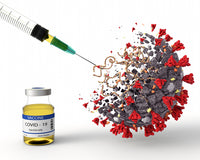Inflammation has become a buzzword, a catch-all phrase, but SPM's and Omega 3 Oils can take care of that.
We evolved to become inflamed. We needed inflammation to cope with pathogens, predators, rivals, and physical injury.
Inflammation is when the body’s white blood cells are recruited and activated for a specific purpose.
Acute inflammation is triggered to help fight an infection or illness or heal an injury.
Unfortunately, the problem starts when inflammation doesn’t resolve.
There isn’t just one type of chronic inflammation.
There are different types of immune responses.
The type of inflammation that leads to chronic joint pain may differ from the kind of inflammation associated with cancer.
Just as another type of inflammation found in depression.
Many immunological cell types are communicating via many signals.
There are adaptive and innate immune pathways.
And We are at the learning-to-crawl stage with understanding the role of nutrition, nutrigenomics, supplements, and personalized lifestyle medicine in the resolution of chronic inflammation.
Many of us have been using omega-3 fats, such as fish oil, for managing inflammatory conditions.
Interestingly, fish oil and SPMs significantly impact our immune system and play an essential role in immune cells’ activity.
The key lies in how fats such as those found in fish oil influence our immune system’s white blood cells.
Our body uses these special fats, like EPA and DHA, to send chemical instructions to our immune cells.
These instructions determine how our immune cells behave.
For example, if we have an imbalance from other fats such as omega-6s (found in processed foods), our immune cells will get different instructions, which can weaken how we respond to infections and cause more damage from inflammation.

How Do Omega-3 Fats Fit Into This?
Our bodies store some of the fats we eat in our cell membranes.
Those fats are used to create powerful chemical instructions for our immune cells.
Omega 3 and Omega 6 Benefits
Omega-3 and omega-6 fats can be made into eicosanoid molecule classes (“eye-cosa-noids”) and SPMs.
Eicosanoids, made from omega-3 and omega-6 fats, tell our immune cells to behave with more or less inflammation.
In general, the eicosanoids made from omega-6 fats are more inflammatory, and the ones made from omega-3s are less inflammatory.
When it comes to infections, we know that inflammation is a necessary “second line” defense process.
While we want to keep the response contained to cause more damage than preventing it.
Over Reactive Immune and Inflammatory States
We see the effects of the chemical signals from omega-3 fats on our immune system very early on in our lives.
By age 3, children who don’t get enough omega-3 fats in their diet are more likely to develop asthma and allergic conditions, like eczema.
These conditions are examples of what happens when our immune system overreacts.
The immune cells recognize a substance (like food or dust) that they would usually tolerate.
Yet, we will treat the substance like something they need to get out of our body.
With infections such as COVID-19, we see an over-exuberant inflammatory response from the immune system resulting in a cytokine storm.
This causes dangerous blood clots.
During severe COVID infections, this cytokine storm can cause immune cells to flood into the lungs, causing intense lung tissue damage.
At these stages, the immune-mediating effects from omega-3 fatty acids may not be enough.
Under high levels of inflammation, omega-3 fats can be susceptible to damage from oxidation.
Sustained high levels of oxidative stress in the body can lead to chronic immune activation and mitochondrial dysfunction.
As a result, it leads to more oxidative stress. So, how might omega-3 fats help our bodies improve their immune response?

Specialized Pro-Resolving Mediators
Fish oil supplements can reduce inflammation while at the same time increasing immune defenses.
Supplementing omega-6 fats to recently diagnosed breast cancer patients resulted in similar immune-modulating effects.
These benefiting effects include the protective benefits while dampening the destructive ones.
Much of SPM research has looked at how our immune cells respond to infectious and inflammatory signals.
We know when healthy immune cells are exposed to disease-causing bacteria ( E. coli or S. aureus), they produce double the variety and 10 times the average amount of SPMs.
These are mechanisms explaining how SPMs influence innate and adaptive immune responses.
This may clarify why we see an overlap of conditions associated with SPM deficits and those most affected by severe infections.

SPMs & Omega-3 Fats Conclusion
Both omega-3 fats and SPMs are naturally occurring compounds in our bodies.
Yet, they are commonly low due to low dietary intake and potential endogenous production issues.
It’s important to consider how these actions are carried out by the immune system’s cells.
Given the rising concern of infectious diseases and their effects on those with preexisting inflammatory conditions.
SPMs are critical to our body’s ability to return to homeostasis—to “bounce back” from inflammatory stressors.
SPM research is rapidly expanding and demonstrating how these compounds influence immune cell behavior.
The discovery of inflammation resolution and SPMs health benefits provides us with a new way of viewing and understanding inflammation.
More importantly, how we can support cellular resilience and overall health.













